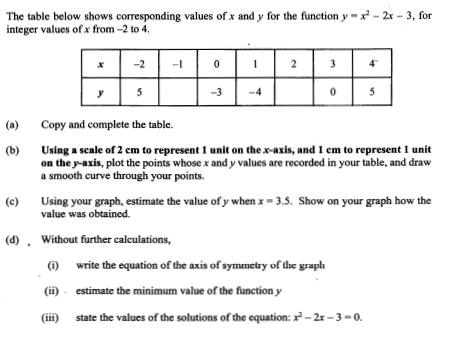
7 minute read
The truth will always prevail Tenders for security services and others
Dear Editor, I recalled a quote from Mahatma Gandhi, which stated that ‘An error does not become truth by multiplied propagation, nor does Truth become error because nobody sees it. Truth stands even if there is no public support. It is self-sustained’.
The Guyanese people are witnessing the lies and the truth as the Budget Debate 2023 progresses, and it is easy for the public to discern who are peddling the lies and who are presenting the facts.
I will just give two examples on Day 3 of the Budget Debate, analysing the presentation by Mr. Roysdale Forde, SC, and the Honourable Minister of Agriculture, Mr. Zulfikar Mustapha. These two presentations will provide evidence that whilst Mr. Forde was spewing untruths and misinformation about the socio-economic conditions which currently exist in Guyana; even as he did his mischief, he was respectfully allowed to make his presentation by those on the Government side, notwithstanding the fact that they knew that his presentation was riddled with errors and inaccuracies meant to misinform.
But not so Minister Mustapha’s presentation. The Opposition side of the House had to be rebuked by the Speaker, since they behaved in the most despicable manner, more suited for the gutters than for the sanctity of Parliament.
I shudder to think that maybe there is an affinity of sorts between the gutter and the Opposition members of the House.
Listening to Mr. Forde’s presentation, one would have thought that he was describing what took place in Guyana during the years of hardships and deprivations that Guyanese had to endure under the late LFS Burnham, and then his successor, the late Desmond Hoyte; and which Guyanese narrowly missed from 2015 to 2020 under Burnham’s acolyte, Mr David Granger. Those were the times when putting food on the table was a criminal activity.
As a senior legal luminary, Mr. Forde ought to know that the harrowing conditions which he depicted in his presentation are falsehoods meant to ‘win’ his case; they do not depict the current reality. His quoted statistics are related to the Coalition’s tenure in Government.
The 26 (including the current term) years of the PPP/C Government, which he decried as being the cause of the dire conditions which he falsely attributed, were the years that brought Guyana from being a highly indebted poor country (poorer than Haiti) to a progressive upper-middle income country in which Guyanese can own their own homes and cars, and go on vacation to North American countries.
Mr. Forde should understand that even though his mentor Burnham spoke about the equality of all races and that all races are important, in reality, he never practised that. He hated all those who opposed him, and many persons were severely persecuted in many different ways; they endured all sorts of persecution. The late Dr. Walter Rodney immediately comes to mind.
Burnham was a dictator in all negative forms and connotations of the term. His rigging, corruption and squandermania, combined with his Machiavellian strategies, are indelibly etched in the annals of our country. The name Burnham will always be synonymous with dictatorship.
Please do not rewrite our history, Mr Forde.
On the other hand, Minister Zulfikar’s presentation was truthful and accurate, with no intent to deceive the Guyanese public. The facts can be verified. His well-constructed speech clearly recalled the horrors and rapid decline that the Agriculture Sector had to endure under the Coalition, especially sugar and rice. It was the Coalition’s Budgets from 2015 to 2019 which were the recipe for the Dutch Curse that Mr. Forde went at pains to attribute to the PPP/C Government’s Budget. The Coalition severely cut the agriculture budget year after year, and saw the rice industry as a private business, as outlined by Minister Mustapha. Minister Mustapha pointed out the massive taxation and other debilitating measures which crippled the rice industry as well. Both rice and sugar were seen as populated by PPP/C supporters, hence the vindictiveness.
The comprehensive and excellently crafted plan for Agriculture will definitely not only realise 100% self-sufficiency by 2025, but will boost the export earnings of both traditional and non-traditional high-value crops.
I exhort those who have missed the Minister’s 2023 Budget presentation to view it on Youtube. There has never been such a solution-oriented plan ever for the Sector, and it definitely will make massive progressive strides from what was already achieved since 2020. The Opposition cannot dispute these hard facts, and as the Minister said in his conclusion, it is worrying when elected officials ignore the facts and go to lengths to distort and present their lies as facts in the Honourable House.
Undoubtedly, the 2023 Budget was well-planned and crafted; was flexible, realistic, and clearly communicated. One can easily discern the connections of the many facets which will promote the economic and social well-being of every Guyanese as the year progresses.
The Coalition must understand that Joseph Goebbels’s Nazi propaganda strategy of repeating a lie often enough and it becomes the truth will not work in this day of easy access to credible information. ‘Truth alone will endure, all the rest will be swept away before the tide of time’-Mahatma Gandhi.
Yours sincerely, Haseef Yusuf
Dear Editor, I wrote on this subject sometime in the past. It would appear that our system for the process of tendering for any kind of Government services and contracts is based on the lowest tender. I therefore wish to use the opportunity to articulate this ‘to open up the eyes of persons in authority and those responsible for tenders, to get a grip of the realities of low or lowest tender’.
I am more familiar with security, and therefore most of what I will say would be based on security, due to the fact that I have been a security practitioner in this country for almost four and a half decades. I have observed in recent times our company has been losing several contracts, and I am not complaining or criticising or attacking, except that I am trying to highlight a problem in the system of tendering.
It goes also for construction: construction of bridges, dams, schools, roads, etc., etc. We have seen recently that large awards went out to persons who build roads, especially roads in communities where the Government budgeted large sums of money to bring convenience and joy to people. It is a painful thing to see a school constructed and not too long after construction it begins to collapse. It is painful to purchase school furniture and to find later that they are of poor quality. It is painful to build a wharf or stelling and find it floating away.
Recently, we saw the Hon Minister Juan Edghill of the Ministry of Public Works has had to stop many road construction projects due to timeline factors, due to poor quality construction, due to unreliability or commitment issues, due to not paying the subcontractors and employees. We know that the Hon. Juan Edghill is a “no-nonsense” person.
The same goes for security services. Persons tendering at the lowest rates, and at times some of the newer guys on the block wanting to make as much as they can, and even some older ones, constantly tendering below cost. Our company recent- ly lost a major security contract, which went to the lowest bidder. When we did the math, we found that it was grossly below cost, taking into account the National Insurance costs, administrative expenses, transport, uniforms, licences, etc.

So how do these companies manage to survive?
Some do it by unethical and dishonest ways. I will highlight some points hereunder:
1. The theft of NIS (National Insurance Scheme) deductions has become a major revenue earner for some security services, and other businesses as well.
2. The theft of the VAT (Value Added Tax) or underpaying the VAT as if giving part of it as a donation to the Government in an attempt to “pull wool over their eyes” from the accurate job that they have to do in this area.
3. Stealing large sums of the PAYE taxes, and again giving a donation to GRA; rarely ever paying corporate taxes.
In the case of NIS, the theft of NIS is such a criminal act, in my opinion. To steal employees’ NIS, which has been deducted, and to fail to pay your two-thirds (2/3) as an employer, is a ‘mighty killing’ for a dishonest employer. Some companies are known to be paying for a small amount of employees in order to obtain compliance to tender. The same for the GRA: pay for a small amount to get the compliance. The theft of VAT hampers the country’s development. In addition, some companies are employing security guards as subcontractors or contractors, and offering them no insurance coverage. The salary looks attractive, but in time the employed persons get no protection under the National Insurance Scheme. This is a very unethical practice by companies.
At times, I wonder if the group or the department responsible for awarding of contracts - security, and otherwise - if they do the math, would realise that it is the Government of Guyana and the employees of the contractors would be the ones ultimately taken advantage of. Whenever there is tendering below the cost, it is always the country and the employees who will suffer. Employees suffer in the form of manipulation of overtime, wages, weekend premiums, annual leave, etc. Many Ministries and Departments become alarmed and confused when they see new security companies without an established record in the industry being awarded security contracts for their sensitive locations, because they now feel they have to become security tutors to train these new persons.

All I am advising is that it should not be that the lowest tender wins the contract, and that other factors should be taken into consideration when the awarding of contracts is being done. From the above points that I have raised, the fact has been clearly established that tendering below cost would be catastrophic to a number of projects, and to the lives and properties of the people of Guyana/Government of Guyana.
Sincerely,
Haji Dr Roshan Khan
Question 1:











